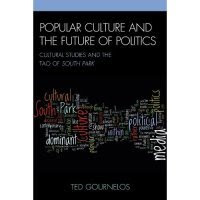
In Playing with the System, Playing with Fire, Gournelos starts out with discussing his prior argument made about Andrew Meyer’s ability to demonstrate “the limits of the public sphere in the contemporary political landscape (247).” He talks about what is “acceptable discourse” and how he acted outside the norm of what the university and police sought out to be “correct.” I thought it was interesting how Gournelos mentions that it is not Andrew Meyer who defined the event, but it was the media who circulated his story, films, and videos. Gournelos then talks about South Park in being similar to the Andrew Meyer event in that it “demonstrates the implications of a convergence culture (247).”
The next few pages discuss the three oppositional tactics: the allusive, the responsive, and the disruptive. Allusive ontology’s being seen to spread the foreground for aesthetic modes of production. Responsive being drawn from the news and reintroduce a level of complexity by “engaging social norms in the terms by which they are negotiated in contemporary cultural events (248).” Disruptive ontology’s are seen to try to create room for silences or social constraints that were untouched by the responsive. It exposes frictions in contemporary society.
Gournelos then speaks about Nina Eliasophs study of apathy. Eliasoph argues “apathy is produced, not inherent, in communities, and that even activist groups are limited by what they deem is acceptable speech (249).” Gournelos brings about an important point that Eliasoph neglects to discuss the media. I found it interesting the way that Gournelos analyzes the use of media. “Communities, discussions, and relationships are formed daily on the basis of a shared knowledge of or access to the media (250).” This is very true and then he goes to mention that people connect to the media. They connect to films through memories and to discussions through memories of films. Media serves as a way to broaden terms of debate.
